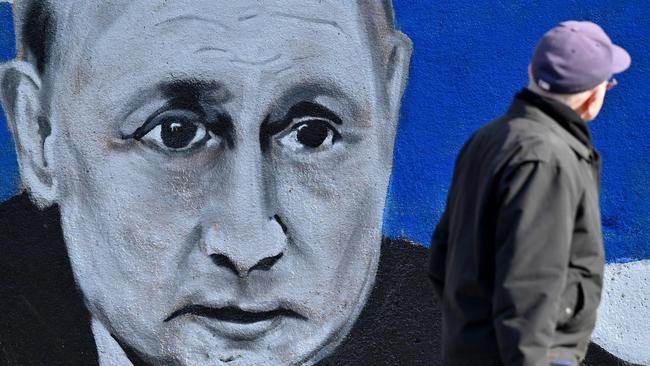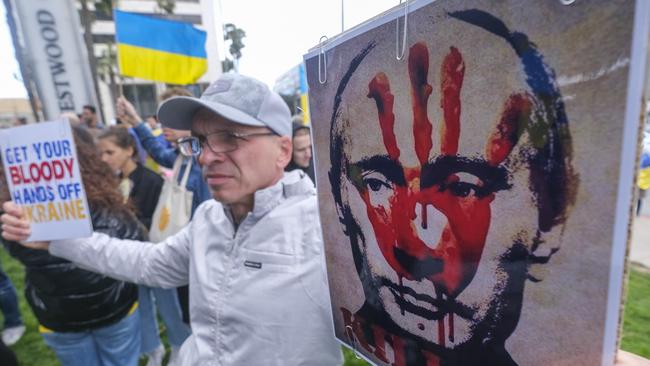
Conflict has tended to define the political path of major powers through history, but in Russia’s case the fortunes of war have played an especially critical role in shaping its national identity, global image, constitutional settlement and social stability.
The Russian people are rightly proud that it was their bravery in war in consecutive centuries that stopped in their tracks, then triumphantly reversed, the two most ambitious efforts to establish an empire across Europe — Napoleon’s in the 19th century and Hitler’s in the 20th.
The Patriotic War of 1812 not only secured for Czar Alexander I his own throne and created a heroic template for Russian cultural genius. It incepted a Continentwide reaction against the subversive tides of liberalism and secularism. The Holy Alliance that Alexander formed in 1815 with Prussia and Austria was the ancient régime’s monarchist bulwark against those currents that had flowed from the French Revolution, and it survived for about 40 years.
The Great Patriotic War of 1941-45 propelled Russia to global superpower status, inaugurated the defining ideological struggle of the second half of the 20th century, and made Joseph Stalin the most powerful Russian ruler since Alexander. It gave Moscow control over the territory of half of Europe and, for a while at least, a controlling influence over the minds of almost half the world’s population.
But Russia has disastrously lost wars too — and on every occasion in the past century and a half, defeat has led to regime change at home and crushing reversal on the world stage.
Defeat in the Crimean war in 1856 led to the dismemberment of Russian possessions in Eastern Europe and the loss of its Black Sea fleet. That conflict also precipitated the premature death of Czar Nicholas I, whose successor, Alexander II, introduced far-reaching reforms of Russia’s autocratic system.
In 1905 defeat in the Russo-Japanese war led to the First Russian Revolution. Czar Nicholas II was compelled to introduce reforms to temper the despotic rule that had been reimposed after Alexander II’s assassination, but Nicholas’s temporising and authoritarianism were his undoing.
Victory … or collapse
It took defeat in World War I to crush not only the czar but any hope of a genuinely democratic Russian revolution. Russia replaced one dictatorial regime with another with the massacre of Nicholas II and his family in a basement in Yekaterinburg and the ascent of Vladimir Lenin in Moscow.
Seventy years later the Soviet Union’s ignominious retreat from Afghanistan exposed the hollowness of Russian military might and the futility of the sacrifice of thousands of Russian families. That led directly to the collapse of the U.S.S.R. two years later.
Mr. Putin is now firmly impaled on this long historical precedent. It already seems that a possibly inconclusive struggle for Ukraine is a likely outcome, but history suggests there are only two alternatives for the Russian leader — a victory of some sort, at any cost, or the collapse of his regime.
This lesson emphasises the peril for all of us. We watch in awe the bravery of the Ukrainian people in resisting Russian aggression. But the stakes for Mr. Putin are so high that they create a terrifying paradox of Russian weakness: The longer the fight goes on, the greater his incentive to escalate. The fear of full nuclear war may be overdone, but we are already a couple of rungs up the ladder that leads to it.
For the West, a defining moment will come in the next few weeks. We are tempted to push harder in Ukraine not only out of empathy with the innocents suffering there, but also by the rising prospect of defeat for Russia and the fall of the regime. Yet every further step up the ladder — the supply of money, weapons and fighter jets, even stopping well short of the no-fly zone some have called for — raises the risk that Mr. Putin intensifies or widens the conflict to avert his own fall.

We are then in the early stages of a process that will require an almost preternatural level of sophistication in our diplomatic approach.
We cannot let Mr. Putin win. Anything that looks like capitulation by Ukraine to his central demand that it never be allowed to join the West only strengthens him. But we can’t risk pushing him to the brink. As unedifying as it seems, we have to find a way to end the suffering in Ukraine, secure the principle of national self-determination, and yet provide Mr. Putin with something that enables him to escape without the excuse for further escalation. Whatever misgivings we have about the quality of Joe Biden’s diplomatic team, we had better pray they have the precise mixture of intestinal fortitude and intellectual suppleness to pull this off.
Because one other thing we know from Russian history is that the aftermath of disastrous wars can be profound, not only for czars or their modern counterparts, but for the rest of us too.
The Wall Street Journal







Although Vladimir Putin has a somewhat warped view of Russian history, he, like his compatriots, knows his country’s story well enough to understand what is at stake for him and them — and ultimately the rest of us — in Ukraine.